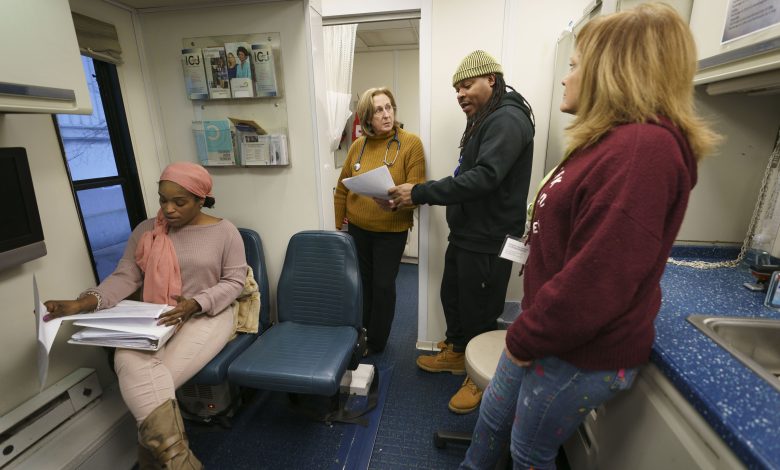How To Start A Suboxone Clinic

What is a Suboxone Clinic?
A Suboxone clinic, also known as an opioid treatment program (OTP) or a medication-assisted treatment (MAT) clinic, is a specialized medical facility that provides comprehensive care for individuals dealing with opioid addiction. Suboxone is a brand-name medication that combines buprenorphine, a partial opioid agonist, and naloxone, an opioid antagonist. It is primarily used in the treatment of opioid dependence and addiction.
The establishment of Suboxone clinics can be traced back to the introduction of buprenorphine, a partial opioid agonist, for the treatment of opioid addiction in 2002. Suboxone, a combination medication containing buprenorphine and naloxone, gained FDA approval the same year. Suboxone clinics emerged as specialized medical facilities that provide comprehensive care, combining medication (Suboxone) with counseling and therapy, to support individuals in overcoming opioid addiction.
These clinics play a vital role in expanding access to evidence-based treatment and addressing the opioid crisis by offering a harm reduction approach and promoting long-term recovery. Here are some key aspects of Suboxone clinics:
1. Medication-Assisted Treatment (MAT): Suboxone clinics specialize in offering medication-assisted treatment for opioid addiction. MAT involves the use of medications, like Suboxone, alongside counseling and behavioral therapies to support recovery. Suboxone helps alleviate withdrawal symptoms and cravings while reducing the euphoric effects of opioids.
2. Licensed Medical Professionals: Suboxone clinics are staffed by licensed medical professionals, including doctors, nurses, and addiction specialists, who are trained in the treatment of opioid addiction. These professionals evaluate patients, prescribe Suboxone, and monitor their progress throughout the treatment process.
3. Individualized Treatment Plans: Each patient at a Suboxone clinic receives an individualized treatment plan tailored to their specific needs. This plan typically includes an assessment of the patient’s addiction history, physical and mental health evaluation, and the development of a comprehensive treatment strategy.
4. Counseling and Therapy: In addition to medication, Suboxone clinics often provide counseling and therapy services as part of their treatment programs. These services can include individual therapy, group therapy, family therapy, and behavioral interventions. Counseling aims to address the underlying issues contributing to addiction, develop coping skills, and support overall recovery.
5. Regular Monitoring and Support: Patients attending a Suboxone clinic receive regular monitoring to ensure their progress and safety. This includes periodic check-ups, drug screenings, adjustments to medication dosage if necessary, and ongoing support from the medical team. Regular monitoring helps assess the effectiveness of treatment, address any challenges, and make necessary adjustments to the treatment plan.
6. Harm Reduction Approach: Suboxone clinics often adopt a harm reduction approach, recognizing that addiction is a chronic condition that requires ongoing management. The focus is on reducing the harm associated with opioid use, improving quality of life, and supporting individuals in achieving and maintaining recovery.
7. Integration with Community Services: Suboxone clinics may collaborate with community resources, such as social services, mental health providers, housing assistance programs, and employment services. This integration helps address various needs and challenges faced by individuals in recovery and promotes holistic support.
Suboxone clinics play a crucial role in addressing opioid addiction by providing evidence-based treatment and support. They offer a comprehensive approach that combines medication with counseling and therapy, helping individuals overcome opioid dependence and improve their overall well-being.
Types of Suboxone Clinics
As an individual, there are several types of Suboxone clinics you can consider setting up. Here are a few examples:
1. Private Practice: You can establish a private Suboxone clinic where you provide medication-assisted treatment to individuals struggling with opioid addiction. This would involve obtaining the necessary licenses and certifications, including a Drug Enforcement Administration (DEA) waiver to prescribe Suboxone. You can offer comprehensive treatment services, including medication management, counseling, and support.
2. Telemedicine Clinic: With advancements in technology and increasing demand for remote healthcare services, you can consider setting up a telemedicine Suboxone clinic. This would involve offering virtual consultations and prescribing Suboxone remotely. You would need to comply with state and federal regulations regarding telemedicine, obtain the required licenses, and ensure secure platforms for telehealth consultations.
3. Community-Based Clinic: Another option is to establish a community-based Suboxone clinic in collaboration with local organizations, community health centers, or substance abuse treatment facilities. This type of clinic would focus on providing affordable and accessible Suboxone treatment to underserved populations. You could seek grants or funding to support your clinic’s operations and partner with local resources to enhance treatment outcomes.
4. Collaborative Clinic: Consider partnering with other healthcare professionals, such as psychiatrists, addiction counselors, therapists, or primary care physicians, to establish a collaborative Suboxone clinic. This approach allows for a multidisciplinary treatment team that can provide comprehensive care, including medication management, counseling, and support services.
5. Nonprofit Organization: If you’re passionate about helping individuals struggling with opioid addiction and want to contribute to the community, you can establish a nonprofit Suboxone clinic. This would involve obtaining nonprofit status, applying for grants and donations, and partnering with other organizations to provide affordable or free Suboxone treatment to those in need.
When setting up a Suboxone clinic, it’s essential to ensure that you comply with all relevant regulations and guidelines. Consult with legal and healthcare professionals to understand the specific requirements in your jurisdiction and seek appropriate licensure, certifications, and training. Additionally, consider establishing relationships with local hospitals, treatment centers, and referral networks to enhance collaboration and patient care.
How to Start A Suboxone Clinic
Starting a Suboxone clinic or opioid treatment program (OTP) requires careful planning, knowledge of regulations and guidelines, and collaboration with various professionals. Here is a general outline of the steps involved in starting a Suboxone clinic:
1. Research and Education:
• Familiarize yourself with the local, state, and federal regulations regarding opioid treatment programs and the prescribing of Suboxone.
• Gain a comprehensive understanding of the opioid crisis, addiction treatment approaches, and evidence-based practices for opioid use disorder.
2. Obtain Necessary Licenses and Certifications:
• Ensure that you have the appropriate medical licenses and certifications required to practice medicine and prescribe controlled substances, including Suboxone.
• Verify the specific requirements for opioid treatment programs and medication-assisted treatment (MAT) clinics in your jurisdiction.
3. Develop a Business Plan:
• Outline your clinic’s mission, vision, and goals.
• Identify the target population you plan to serve and assess the demand for opioid addiction treatment in your area.
• Create a detailed financial plan, including estimated costs, revenue projections, and potential funding sources.
4. Establish Collaborations and Partnerships:
• Connect with local healthcare providers, addiction specialists, therapists, and other professionals who can contribute to the comprehensive care of your patients.
• Explore partnerships with local hospitals, substance abuse treatment centers, and community organizations to enhance referral networks and support services.
5. Facility Setup and Staffing:
• Identify a suitable location for your Suboxone clinic, considering factors such as accessibility, confidentiality, and proximity to transportation.
• Ensure that your facility complies with all relevant health and safety regulations.
• Hire qualified staff, including doctors, nurses, counselors, and administrative personnel, who have experience in addiction treatment and MAT.
6. Develop Treatment Protocols and Policies:
• Establish treatment protocols and guidelines for prescribing Suboxone, including patient evaluation, induction, stabilization, and maintenance phases.
• Design comprehensive patient intake procedures, including medical assessments, psychosocial evaluations, and treatment planning.
• Implement policies for patient confidentiality, safety, and adherence to best practices in addiction treatment.
7. Insurance and Billing:
• Contact insurance providers to determine reimbursement rates and requirements for opioid addiction treatment.
• Familiarize yourself with coding and billing procedures specific to opioid treatment programs and MAT services.
8. Marketing and Outreach:
• Develop a marketing strategy to raise awareness about your Suboxone clinic and the services you provide.
• Establish relationships with referring healthcare providers, community organizations, and agencies involved in addiction treatment and recovery support.
• Use online platforms, local media, and community events to promote your clinic’s services and educate the public about opioid addiction treatment options.
9. Continuing Education and Quality Improvement:
• Stay updated on the latest research, guidelines, and advancements in addiction medicine and MAT.
• Engage in continuing education activities and seek professional development opportunities for yourself and your staff.
• Implement systems for quality assurance and improvement, including regular audits, outcome monitoring, and patient feedback.
10. Compliance and Regulatory Requirements:
• Ensure ongoing compliance with local, state, and federal regulations governing opioid treatment programs and MAT clinics.
• Maintain accurate records, adhere to reporting requirements, and participate in regulatory inspections as necessary.
Starting a Suboxone clinic requires careful planning, collaboration, and adherence to legal and ethical guidelines. Consider consulting with experts in addiction medicine, healthcare administration, and legal compliance to ensure a smooth and successful clinic establishment process.





